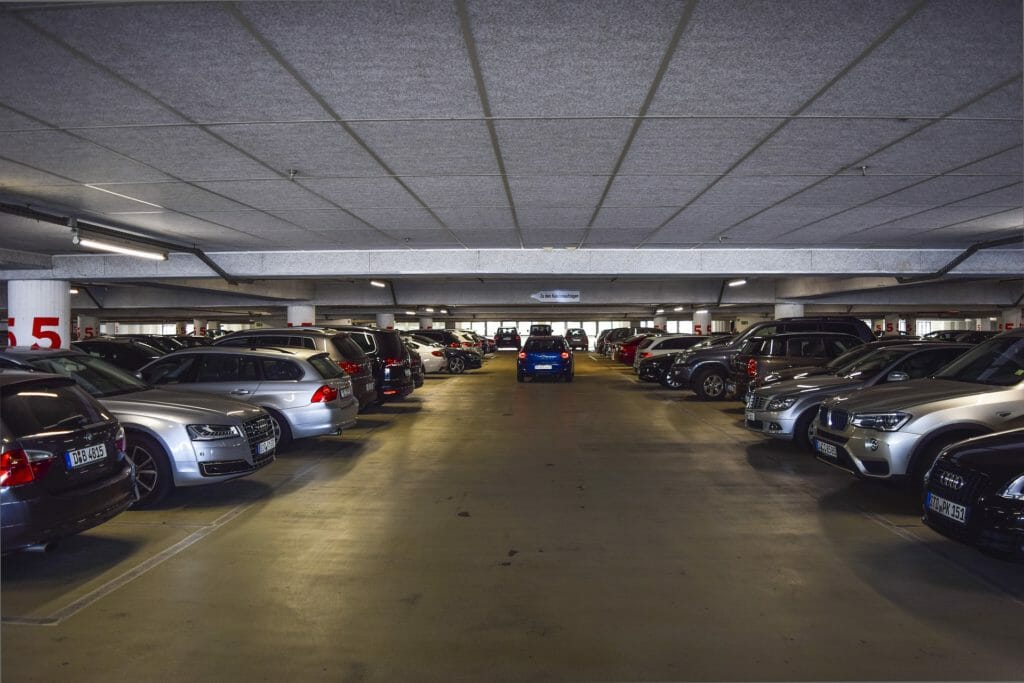If you live in a condo, you know that parking spaces can be rare and valuable commodities. Some condos have at least one parking spot per unit, but other developers only build spots for the larger units in the building. This can create problems for owners or renters who have a car but don’t have a designated spot to park it in.
In other cases, a resident may have a unit and parking space, but no car. If they wanted to help a neighbour who has a car but no parking space, could they rent their spot out to them? Unfortunately, this question cannot be answered with a simple yes or no.
Click here to Download our violation letter template
Do you own the parking spot?
The first thing to ask is if the parking spot is available on a first-come, first-served basis, if it is legally owned by you, or if the spot has been allocated to your specific unit.
Parking spots that are part of the building’s common elements
Parking spots may be considered common elements, which means they are available for use by all owners on a first-come, first-served basis. If this is the case, the resident would not be in a position to rent out a spot.
Exclusive-use parking
Parking spots that are considered to be limited common elements are not available to any resident or owner. These types of parking spaces don’t have their own separate legal titles, rather they are usually allocated to a particular unit, or they may be allocated by the condo board. The resident using the space does not hold legal title to it, but they do have the exclusive right to use it as long as they occupy the unit. The resident can use the parking space subject to any restrictions in the corporation’s governing documents.
Things can get complicated when the person who has an exclusive-use parking space wants to lease it out. The lack of separate legal title for each separate space can make it difficult for the board or condo manager to keep track of which unit owner is parking in which space.
Parking units
Parking units have their own separate legal titles and are legally owned by the residents who have been given the parking spaces. The parking spots are not common elements. This means that the owner of the parking unit can lease or sell the parking space separately from the condo unit, subject to any restrictions in the corporation’s governing documents. Note that the maintenance and repairs of such spots may be the responsibility of the owner.
Check city bylaws first
Anyone interested in selling, leasing out their parking space (or any board interested in prohibiting this activity) should always start with municipal or city bylaws to see where they stand. Different cities will have different rules.
For example, when parking apps like
or
came onto the scene, homeowners who owned driveways were excited about the possibility of making a little extra money. These apps let ordinary people rent their parking spaces for a fee. However, not everyone could participle, at least not legally.
In some places, renting a private parking spot could be interpreted as running a commercial enterprise, and that may be illegal depending on local zoning, bylaws and even the type of dwelling. In Toronto, homeowners or renters can legally rent a single spot – but they cannot rent out their driveway or yard. Anyone who turns their front yard into a parking lot can face a maximum $5,000, but enforcement is complaint-based, which means a homeowner who does rent out their entire driveway isn’t likely to get caught.
City rules may differ for people who live in condos. In Toronto, if you live in a condo and legally own your spot, the city will allow you to sell or rent the space to fellow residents in the same building. This limitation is designed to prevent strangers from entering the condo building’s parking area and make sure that future owners have a place to park. People who do not follow this rule could have their vehicles towed by the condo corporation, and possibly face legal charges. Furthermore, all legal costs incurred by the board could ultimately be applied as a lien against the original parking owner’s unit. Fines can be as high as $25,000 for an individual, and $50,000 for a corporation.
Condo laws
Condo rules can be even more restrictive than city bylaws, so once you’ve taken a look at city rules, your next step will be to examine parking rules and restrictions established by your corporation.
The condo’s declaration or rules can restrict the leasing of a parking space to fellow owners or tenants in addition to people who do not live in the building.
Generally, if spaces can be rented, condo laws will require those unit owners who are leasing parking spaces to notify the board immediately so that the corporation can maintain an accurate parking record. There may also be a bylaw or rule that includes a provision which terminates the lease of a space upon the transfer of the condo unit by one of the affected owners.
Residents parking vehicles in guest parking
Visitor parking is reserved for guests. Residents should never be allowed to park in this area unless there is an exceptional circumstance. Unfortunately, some tenants may misuse visitor parking if they cannot find their own space in the residential parking area.
If residents are consistently using guest parking and the board or property manager notices, these residents could easily be issued a violation notice and a fine. Most condos will have a predetermined system for addressing violations, and parking is included in this system. Residents are cautioned to pay any fines and stop parking in unauthorized areas. If the unwanted behaviour continues, the building could suspend parking privileges altogether, or even tow the vehicle.
Condos cannot take this issue lightly as the problem can quickly get out of hand. Owners become furious when they see the same cars parking in a spot that doesn’t belong to them. The corporation or association needs to be proactive and take all reasonable steps, even if that involves towing, to ensure owners who have (and who pay for) designated spots can always use them.
Managing parking spaces
The last thing condos want is a parking war. When people continue to park in the wrong spots, it’s frustrating for owners and the condo board. Property management software from Condo Control can help resolve parking complications.
Using the Unit File feature, management can log useful information about every resident, including their parking spot, the make and model of their vehicle, and their licence plate number. This information can be used to verify that the correct owner is parking in the correct spot.
For visitor parking, security or concierge can use our Visitor Parking feature to determine who is and who isn’t supposed to be in the visitor parking area. Residents can create visitor parking passes from their desktop or mobile phone, and security can keep track of how many passes were issued and who the permits were issued to and from. Limits can also be placed on the availability of parking passes so that residents cannot print off more than their fair share.
Conclusion
When it comes to leasing parking spaces, every condo will have its own rules. Boards need to follow bylaws set out by their city, and create clear guidelines based on the corporation’s bylaws and rules.
If your condo does allow you to sell or lease your spot, you will probably be required to get the transfer approved by the association’s board of directors. It’s better to be overly cautious and ask for permission from the board before you lease your spot than find out you’ve done something that goes against the condo’s rules after the deal has been made.
Download Template
Download our free violation letter template



